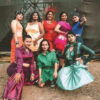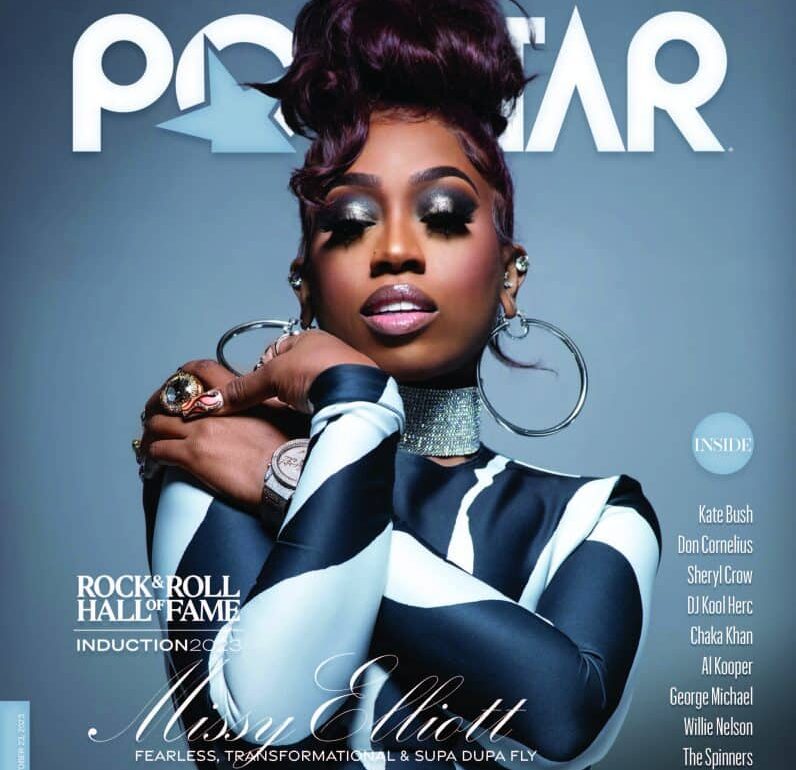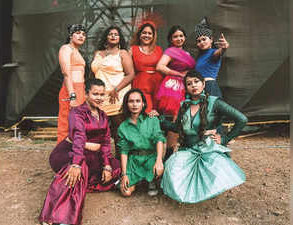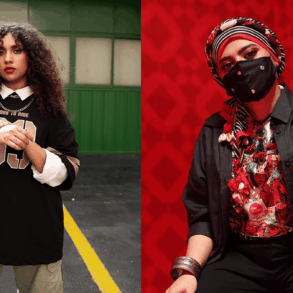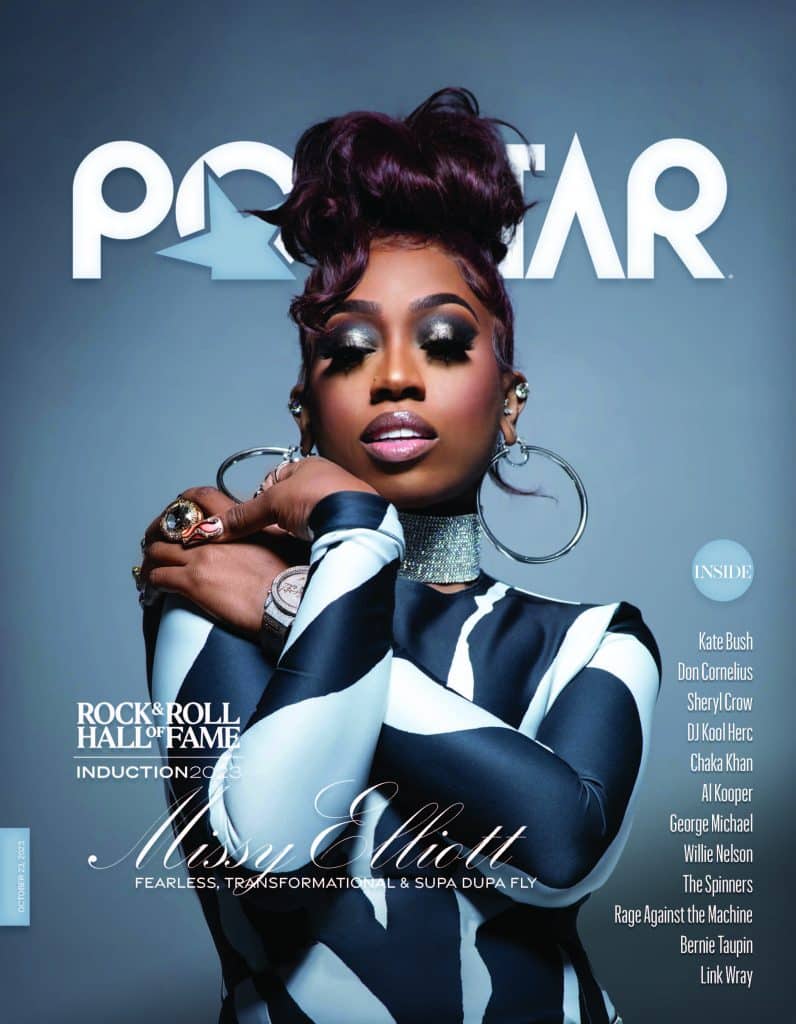
In a word: bodacious. As if one word could contain the audaciousness of Missy Elliott.
Missy “Misdemeanor” Elliott, writer/producer/innovator/groundbreaker/connector/superstar, is the first female hip-hop artist to enter the Rock & Roll Hall of Fame. Of course. That she’d go in – as a Black woman, no less – in her first year of eligibility is a testament to her relentless creativity and hunger for going places rap, rock and pop had never considered.
Elliott redefined the game of American music over three decades – whether beats, heart, style, attitude or melody. And while the 52-year-old Virginian always brought it – and brought it hard – more importantly, she brought it with a mad joy.
Even before she dropped 1997’s mind-blowing platinum-certified Supa Dupa Fly, she’d written, produced or guested on breakout tracks for Aaliyah, Jodeci, Busta Rhymes, Mariah Carey, SWV, 702, Levert and MC Lyte. Part of a creative trust that often saw her partnering with Timbaland, it wasn’t long before she was working with iconic superstars Destiny’s Child, Lil Kim and Whitney Houston.
“I’m unaware of the genre of music I’m creating when I do music for myself or other artists,” she emailed from a break in Virginia’s second annual Missy Elliott Day from her hometown of Portsmouth, “because I don’t believe in being in a box or making music for a particular group. I don’t think of any of those things when I’m creating. My main purpose is to make music for everyone and giving the people something they can feel.”
Futuristic. Avant-garde. Rooted in the roots. Was it the herky jerky, cut/stop editing of the Hype Williams-directed clip for “The Rain,” Supa Dupa Fly’s debut single? The sample of Ann Peebles’ 1971 Hi Records recording and 1973 smash “I Can’t Stand The Rain” that evoked Memphis’ deep soul? The patent leather-gleaming garbage bag jumpsuit that defied every style convention, creating its own fashion forward chic? How it cut through everything on the radio?
Absolutely.
In that moment, the young woman who’d worked with Rodney Jerkins, Sean “Puffy” Combs and Swing Mob emerged as a singular force. Jettisoning gender limitations inherent to the 20th century music business, she founded her own The Goldmind, Inc and created a world according to Missy Elliott.
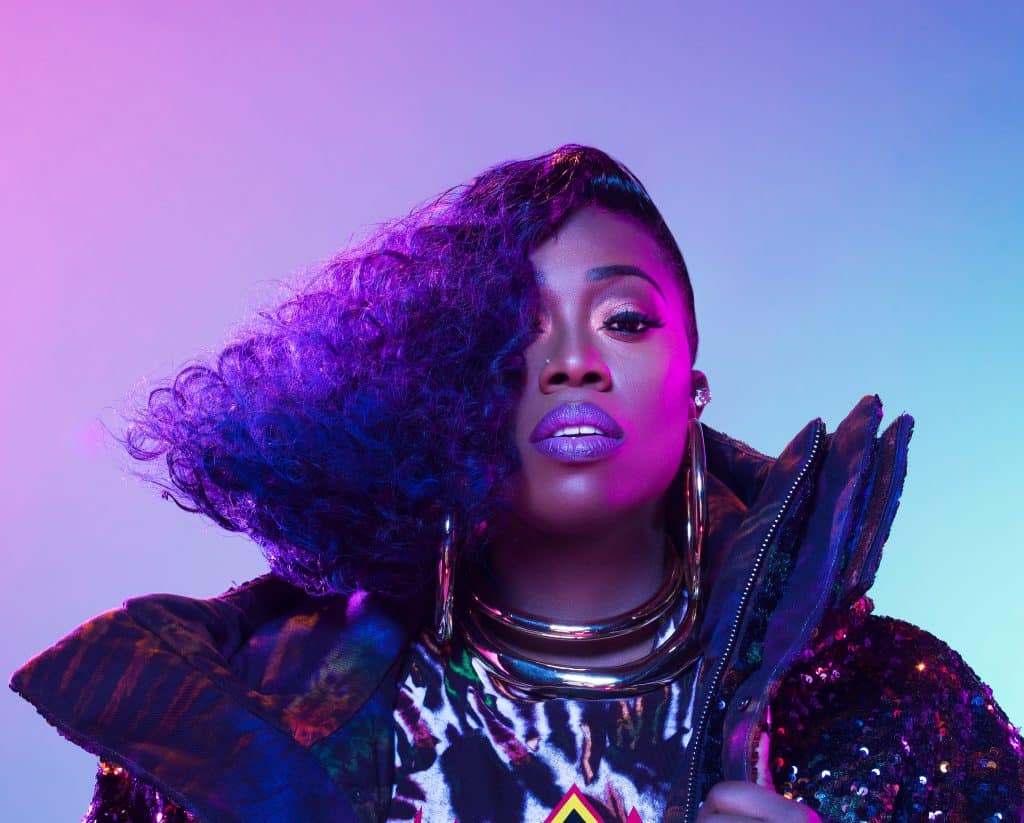
Whether blowing minds on Lilith Fair alongside Sarah McLaughlin, Luscious Jackson, Indigo Girls and Sheryl Crow, being nominated for 1998’s Best Rap Album Grammy or pouring out of (sub)urban televisions on MTV and BET, her presence foreshadowed 21st century femme forces Janelle Monáe and her futurism, Nicki Minaj’s technicolor aggression, Lizzo’s self-empowerment and self-love, Cardi B’s sex forward potency, Jazmine Sullivan’s real life triage and myriad women who would rap with arpeggiated swagger but sing with equal ease from deep inside.
“My God YES!” exclaims Hollywood Reporter Sr. Music Editor Mesfin Fekadu, remembering his first glimpse of Elliott. “Watching the video for ‘Supa Dupa Fly (I Can’t Stand The Rain),’ walking as close to the TV as I could. I was enamored with that video, myself and my entire family. I was 11; my brothers were 12 and 13, and my 15-year-old sister.
“The melody, the fashion, even more her presence, dance moves, creativity… All I could think was: ‘What… the HELL… is… THIS?’ She was doing 2025 in the ‘90s. She was so bold, so creatively free, you couldn’t look away.”
“Missy Elliot is a true visionary in every sense of the word,” says John Sykes, current chairman of the Rock & Roll Hall of Fame Foundation and MTV co-founder. “The world discovered her genius as a rapper and video pioneer in the ‘90s with ‘The Rain,’ but her writing and producing talent has gone on to inspire some of the greatest female hip-hop and R&B artists of today. For all those reasons she will be the first female hip-hop artist to be inducted into the Rock & Roll Hall of Fame.”
The music – like the videos that earned Elliott MTV’s prestigious Video Vanguard Award – spoke for itself. Fresh. Vital. It pulsed with both her strong sense of self and an unabashed sense of pushing limits.
Supa Dupa led to 1999’s Da Real World, then 2001’s Miss E… So Addictive, 2002’s Under Construction, 2003’s This Is Not A Test and 2005’s The Cookbook: full-on albums so dense, so propulsive, so “y’all come,” they are all certified platinum. Six-out-of-six.
And the hits? “Get Ur Freak On.” “Lose Control.” “She’s a Bitch.” “Work It.” “Sock It To Me.” “One Minute Man.” “Beep Me 911.” “We Run This.” “WTF (Where They From).” “Sock It To Me.” “Hot Boyz.” “Pass The Dutch.”
Those are just some of her hits.
Middle Eastern scales. Stop/start beats. Swooping vocals. Rhymes that corkscrew, incite, impale. Synthesizer tones. Loops. Heck, sounds. Pipes. Hoses. Phased voices.
“What fires my creativity is hearing unorthodox sounds and different cadences when it comes to beats, rhymes and songs,” she explains. “I gravitate to things that are not the norm even when it comes to style and dress.”
It’s what makes the Rock Hall matter to Elliott.
More than the “10,000 hours,” working with emerging talent, becoming the first female hip-hop creator in the Songwriters Hall of Fame or high profile gigs headlining festivals in Singapore, Nigeria, Russia, Australia, Belgium, France and the UK to being Katy Perry’s secret Super Bowl Halftime Show weapon, she is incandescent.
Everything she does is about making a mark. As she said, “Being inducted is huge to me because when you’ve worked as hard as I have, it shows your work isn’t in vain. My whole career has been an experiment musically.
“If you go back and listen to my music, you will see there is still nothing like it! This is not my opinion… these are facts! Tim and I ushered in a sound that they didn’t know what category to put it in.”
The key is, “Deciding at some point in your creative life, you don’t give a darn anymore,” Danyel Smith, author of “Shine Bright: A Very Personal History of Black Women in Pop,” says. “Though she probably wouldn’t say ‘darn.’
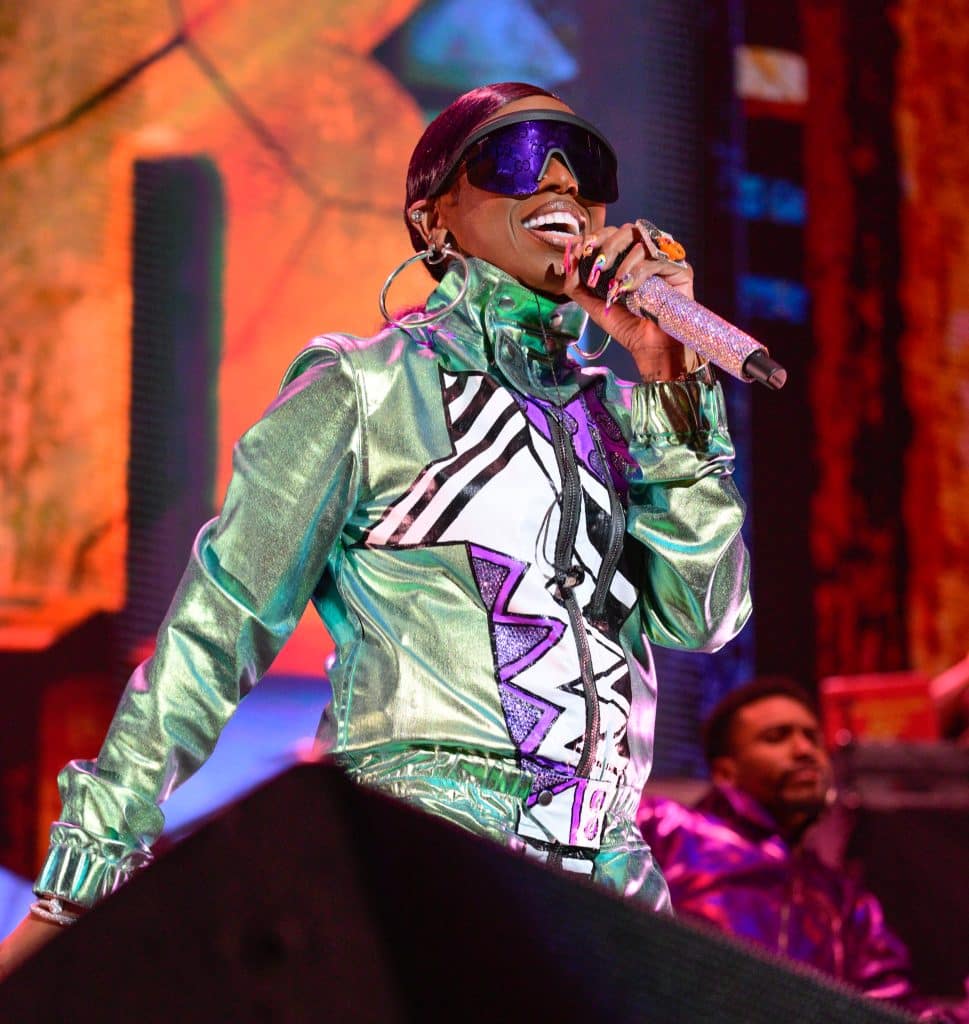
“But whatever the expectations – for a woman, a Black woman, a producer – Missy was more interested in creating not just from the song, but the sound, the look, the attitude. She wasn’t afraid to pick a rare groove. She did it in combat boots and sneakers, but she kicked all the doors in.
“She was also all the lips, and the booty, and the curves. In the ‘90s and 2000s, going out and seeing Missy in the rooms was always a great reminder.
“She had the clothes, the sneakers, the sunglasses, the nails – and it was Statement! Statement! Statement! But very much (a sense of) being comfortable, cute and also very much ‘I’m working.’”
That fierceness with fun attracted people, drawn to her ebullient process of making records. The collaborators were a who’s who: Jay-Z, Beyoncé, Eminem, TLC, Nelly Furtado, Da Brat, Red Man, Ludacris, Mya, and Method Man. They all came for her.
And then there are the massive pop divas she teamed with: Madonna, Whitney Houston, Janet Jackson, Mariah Carey and yes, Beyoncé.
For sheer ballast in the pop forcefield, few things compare with Elliott’s operatically churning “Lady Marmalade,” which teamed Christina Aguilera, Lil’ Kim, Mya and P!NK.
Muscular and star-turning, the grind matched four divas for a tidal wave of sexual power that her earliest rhymes suggested, even introducing people to the notion of “shave my chocha” (from “Work It”).
Fekadu, who trick-or-treated as “Sock It To Me” Missy, adds, “For her as a female in an industry that’s male-dominated, then in rap where the percentages of men are even greater, she never looked back.
“Her versatility took her from hip-hop festivals to the Apollo to Lilith Fair. She clearly threw down live; even if the audience didn’t know her, they would … And the dudes liked Missy. They didn’t hide it,” Fekadu adds.
“I didn’t purposely say I wanna do something outlandish to get a reaction or to get people talking,” Elliott says. “I just maintained being who I was from a child. I was always going left if everyone else went right. I believe that in doing that it made other artists become inspired and say, ‘Well let me experiment because it’s working for her, and she makes it look fun and OK to do.’”
Her reach across genres, genders, eras and expectations is the same rebellion that fueled many inductees. Though for Elliott, it comes down to the music.
“What makes me Rock & Roll is my heavy beats and how my entire sound was intertwined with Rhythm & Blues, Jazz, and Gospel; some of the same elements that make up Rock & Roll. My music has always been a sound of the unknown and that sound ushered in a new gumbo-type of vibes.
“Even down to visually, I look back at my ‘She’s A Bitch’ video and until this day, it screams badass rocker to me!
“With me receiving this honor, I hope it opens a door for women, especially coming from the Hip-Hop world, [women] who are writers and producers who have been overlooked; they will be acknowledged because we always see that most of the men certainly get acknowledged.
“This is a conversation to be had, that there are women out there who are great and should be acknowledged for their hard work and ideas, sleepless nights, blood, sweat and tears. So I hope we see more women getting their bouquets.”
This post was originally published on this site be sure to check out more of their content.


